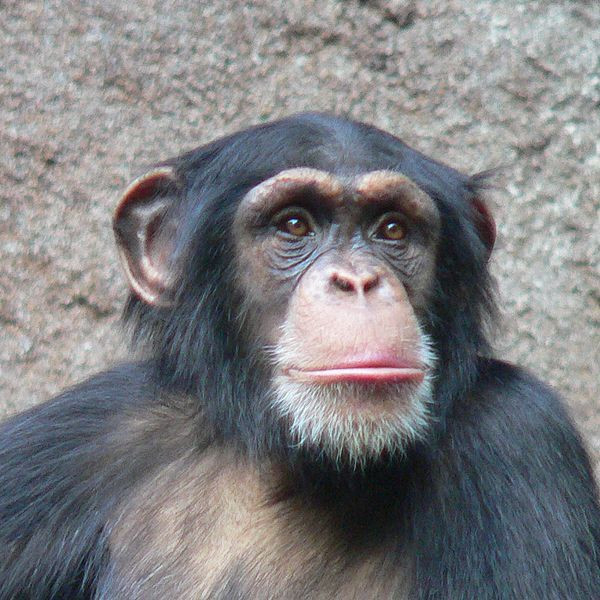NIH To Retire Most Chimps From Medical Research, Raising Questions Of Where 310 Domesticated Chimpanzees Will Go

Following a June 11 proposal to place chimpanzees on the endangered species list, the National Institutes of Health (NIH) has made the decision to retire 310 of its government-owned chimps over the next few years.
To date, chimpanzees used in research settings have provided ample insights into the world of science and medicine, from aiding the development of hepatitis A and B vaccines to furthering the space race. Now, NIH bids a fond adieu to over three-quarters of its chimp reserves, as it keeps only 50 on retainer, which the organization says will only be used in cases where no other animal suffices.
"These amazing animals have taught us a great deal already," said NIH Director Dr. Francis Collins. He said the decision helps usher in "a compassionate era" and that the animals "deserved special respect."
According to the Associated Press (AP), NIH's decision to retire the chimps is largely expected, after a 2011 announcement from the prestigious Institute of Medicine that it would no longer perform invasive medical research on nearly all chimpanzees.
In five years, the NIH said, it will review whether the 50 remaining chimps still require detainment.
While the world wishes the chimps all the best as they leave their cages, the congratulations may be short-lived. Little discussion has been made as to where the newly liberated chimps are headed. One option, the AP reports, is Chimp Haven — a national sanctuary in northern Louisiana that 150 chimps already call home. However, NIH officials caution the sanctuary doesn't have enough room for over 300 more animals.
It is also exploring the possibility of renovating labs currently housing government-owned chimps, and turning those labs into makeshift sanctuaries. To compound the problem, Congress has limited the NIH's budget in caring for chimps in their new habitats.
This has led Collins to remark that "everybody should understand this is not something that is going to happen quickly."
Two weeks ago, the U.S. Fish and Wildlife Service submitted a proposal to include chimpanzees on the endangered species list, a motion that Dr. Jane Goodall said she "was so pleased to hear about."
"This is exceptional news for all chimpanzees and for all the petitioners, especially the Humane Society of the United States, who have worked so hard on this issue," she added. "This decision gives me hope that we truly have begun to understand that our attitudes toward treatment of our closest living relatives must change. I congratulate the U.S. Fish and Wildlife Service for this very important decision."
Adding chimpanzees to the list, which also includes such animals as polar bears, prairie dogs, and blue whales, sets federal limits on the animals' import and export. Currently, less than 300,000 individual chimps exist in the wild. An additional 450 are used in some 30 government research programs.
The proposal to add captive chimpanzees to the endangered species list will be published in the Federal Register on June 12, 2013, and will be open for public comment for 60 days.



























